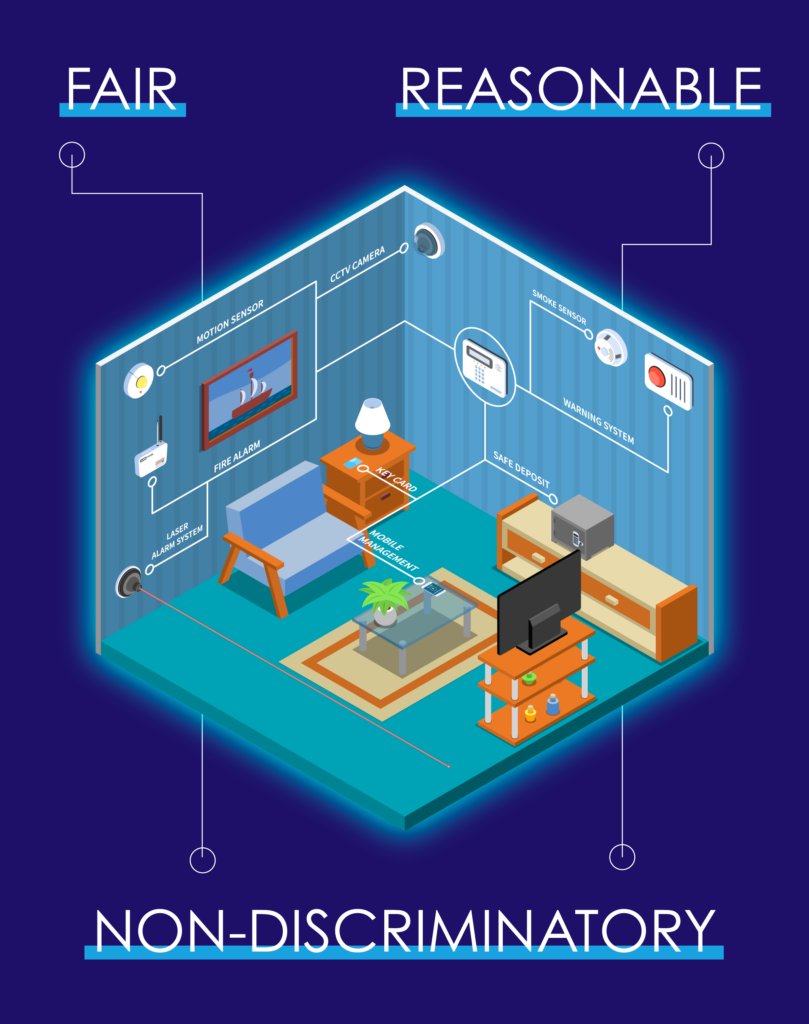Why We Need Regulation

FSA members’ innovation potential relies on open access to standard essential technologies.
Unpredictable, chaotic, unfair
The current system for licensing SEPs is chaotic, unpredictable, opaque and unfair. SEP holders regularly exploit information asymmetries and threaten injunctions to exclude potential licensees from the market in order to force them to agree to license terms that may not be FRAND.
SEP disputes and licensing uncertainty discourage investments into next generation technologies driving digitalisation and green technologies. Internet of Things (IoT) markets are particularly sensitive to SEP abuse.
SEP licensing practices from the telecoms industry are ill-suited for IoT markets characterised by low-margin, large-volume products where a few cents on each product can mean the difference between profitability and failure.
To ensure that we can provide the most innovative products to European consumers at the best prices, we need to fix the status quo.
How to fix the status quo
Transparent and Predictable Aggregate Royalty Determination
We need expert opinion on aggregate royalty to provide clarity on the maximum potential cost of implementing a standard before investments are made. This will assist companies in making informed decisions about which standards to invest in and support.
Reduced Risk of Unjustified Hold-up Pressure
We need a FRAND determination process that removes the threat of immediate injunctions. This will enable parties to negotiate more fairly and reach mutually agreeable terms.
Neutral Third-Party Assessment of FRAND Terms
We need a FRAND determination process that provides a mechanism for both parties to obtain a neutral assessment of whether the offered terms are FRAND. This ensures that both licensors and licensees have a fair opportunity to negotiate equitable terms.
Safe Harbor for FRAND Negotiations
We need a safe harbor provision that protects parties from injunctions during FRAND negotiations, allowing them to reach agreements without undue pressure. This could save both licensors and licensees time and resources by avoiding costly litigation.
Open FRAND Determination Process
We need a FRAND determination process that is open to any party, ensuring that all companies can obtain SEP licenses. This will help mitigate the issue of refusal to license and promote fair access to essential technologies.
Improved Understanding of Essential Patents Through SEP Register and Essentiality Checks
We need an SEP register, together with an essentiality check system, to provide better visibility into which patents are essential to a standard. This will improve transparency and facilitate informed decision-making by companies.
Centralised Registration System for SEPs
We need a centralised SEP registration system to bring much-needed transparency to SEP licensing.This will provide a clear and accessible record of essential patents, facilitating essentiality checks and FRAND negotiations.
Leveraging Existing Information for SEP Registration
SEP registration can leverage information that has already been shared elsewhere, such as in SDO declarations or patent pools. This will streamline the registration process and reduce administrative burdens for SEP holders.


